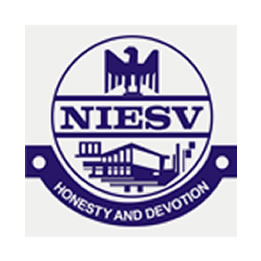At a recent event held in Lagos, the Chairman of the Nigerian Institution of Estate Surveyors and Valuers, Gbenga Ismail, highlighted the critical issue of transparency in property transactions as a major factor fueling fraud within the real estate sector. Speaking at the 2024 Mandatory Professional Development event focused on “Embracing Technology: The Future of Real Estate Services,” Ismail emphasized that as Nigeria’s urbanization accelerates and its population grows, the real estate industry stands to play a crucial role in the nation’s economic development. However, to tap into this potential and overcome challenges such as housing shortages and operational inefficiencies, incorporating technological advancements into real estate practices is imperative. According to him, adopting technology will enable the sector to better serve the increasingly sophisticated needs of urban dwellers and the expanding middle class.
Ismail stressed that the future of Nigeria’s real estate sector hinges on how effectively it adopts modern technologies. He pointed out that various innovations—including blockchain, artificial intelligence, big data analytics, and virtual reality—are revolutionizing global property development, marketing, and management. He articulated that the persistent lack of transparency in property transactions not only breeds disputes but also undermines trust in the system. By implementing blockchain technology, for instance, the industry could establish secure, unchangeable records of property ownership, significantly reducing fraud risks. This technological shift would not only enhance local investor confidence but also attract foreign investment into Nigeria’s real estate market, essential for its growth and sustainability.
Other prominent speakers at the event echoed Ismail’s sentiments regarding the transformative potential of technology in real estate. Akin Opatola, President of the International Real Estate Federation, Nigeria, Lagos Chapter, underscored how technological innovations, particularly in the realms of PropTech—including artificial intelligence and digital platforms—are reshaping property transactions and customer interactions. He indicated that these advancements are not merely influencing the way properties are bought and sold but are also significantly enhancing stakeholder engagement in the real estate ecosystem.
Femi Madariola, a Partner at PwC specializing in Digital Innovation, praised the revolutionary impact of technology on real estate operations. He mentioned the emergence of automated property management systems, which streamline various administrative tasks such as rent collection, maintenance tracking, and financial reporting. He also elaborated on the role of blockchain in ensuring transactions are secure and transparent, providing an immutable ledger for all real estate dealings. Furthermore, Madariola highlighted the applicability of artificial intelligence in property valuation, enabling investors to make informed, data-driven decisions that mitigate risks associated with overpricing. He also noted the use of augmented reality, virtual reality, and drones for comprehensive property inspections, significantly enhancing the efficiency of how properties are assessed.
The event’s discussions also featured insights from Godspower Omozusi, Chairman of the MCPD Committee of the NIESV Lagos Branch. He articulated the alignment of the event with the objectives of the institution’s current leadership, emphasizing its role in equipping members with vital skills and knowledge. Omozusi called for strategic and consistent training of real estate professionals, advocating for collective empowerment to navigate the challenges that the sector faces. His conviction was that programs focused on these aspects would not only elevate members’ competencies but also arm them with tools necessary to address the multifaceted issues highlighted throughout the event.
In conclusion, the overarching message from the Lagos event centered on the urgency of embracing technology in Nigeria’s real estate sector. As challenges such as fraud and lack of transparency hinder progress, technology presents viable solutions that can revolutionize property transactions and enhance operational efficiency. From blockchain to AI and automation, these tools will foster an environment conducive to trust and growth while also positioning the industry favorably in the global market. The call for continuous professional development and collective action reflects an awareness of the necessity for change in a rapidly evolving landscape. By integrating technological advancements, the Nigerian real estate sector can transform challenges into opportunities, paving the way for sustainable economic development and enhanced investor confidence.


